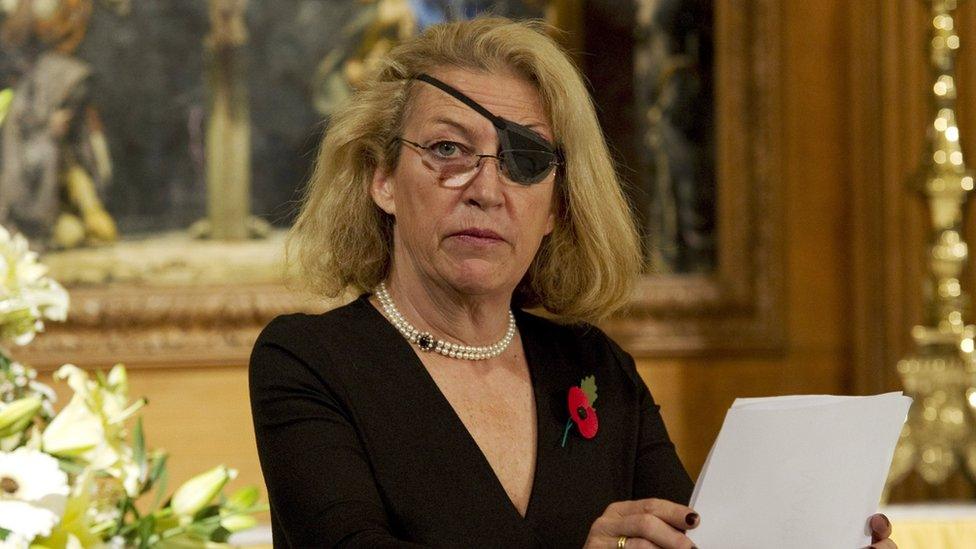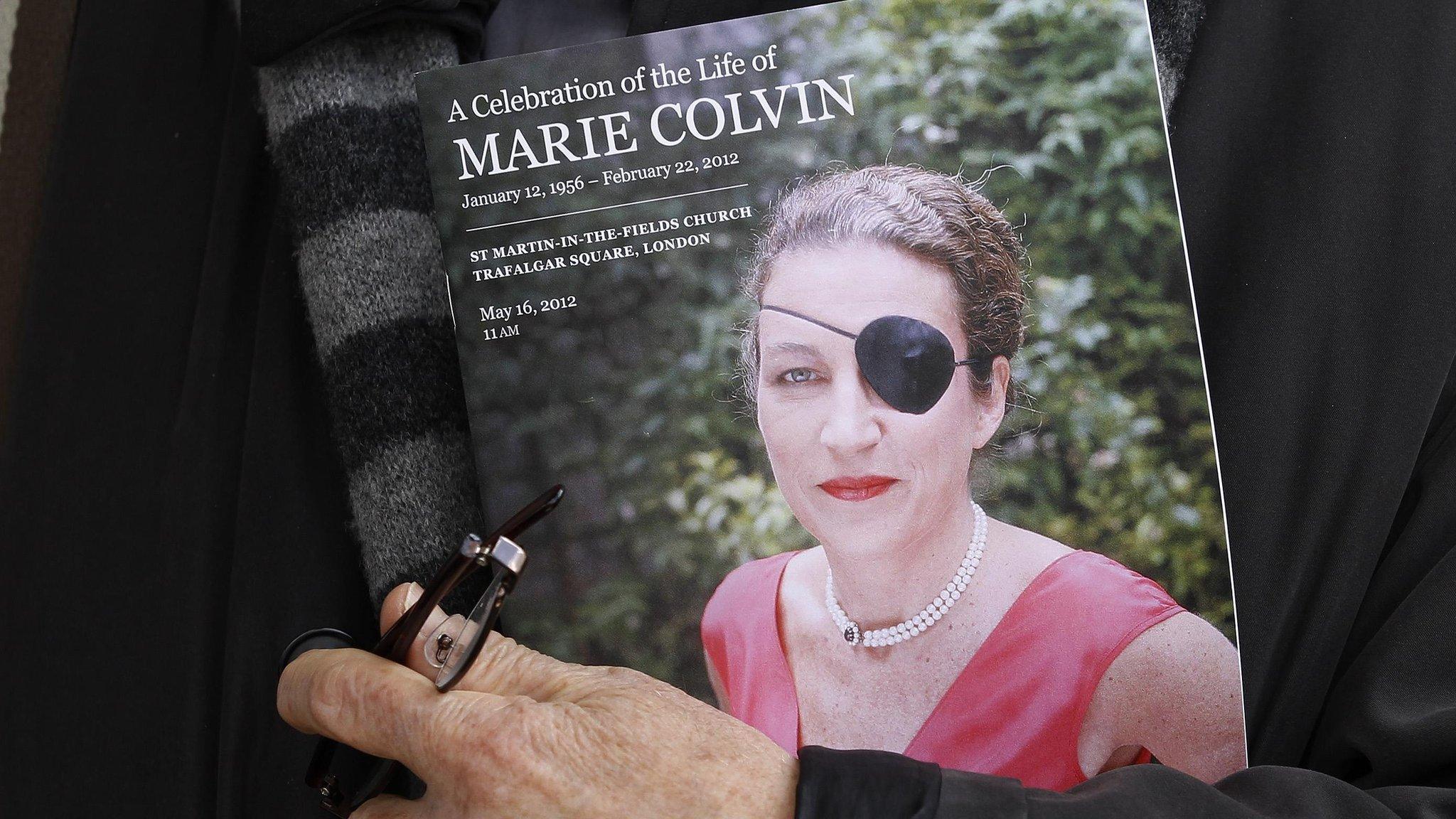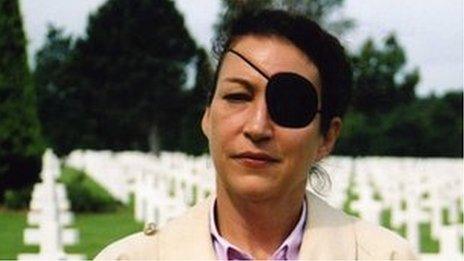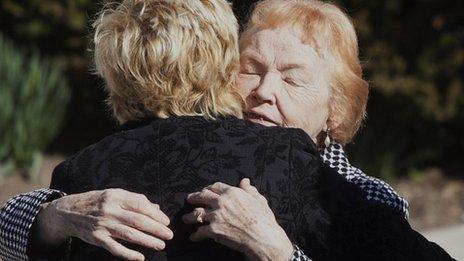Marie Colvin: Syria assassinated reporter, court told
- Published

Marie Colvin lost the sight in her left eye when covering the civil war in Sri Lanka in 2001, but went back to work as a journalist
A journalist who was killed at the start of the war in Syria was "assassinated" by the government, family members have claimed in newly released court documents.
Marie Colvin died in February 2012 in Homs, Syria, alongside French photographer Remi Ochlik, when the building they were in was shelled.
Military memos and testimonies from defectors appear to chart how she was targeted.
Ms Colvin worked for the Sunday Times.
The sister of the highly respected correspondent, Cathleen Colvin, has brought a claim to a federal district court in the US stating her death was "an extrajudicial killing" and asking for compensation from the Syrian government.
Several defectors claim in documents submitted for the case, external that the government tracked journalists' satellite phone signals to find out their whereabouts.
The Colvin family's lawyer, Scott Gilmore, said the documents included evidence that the government of Bashar al-Assad had "identified media workers as targets from very early on in the conflict".
One anonymous defector names senior military personnel who he says drank and celebrated, external the day after the journalists died.
He states that a military intelligence officer said: "Marie Colvin was a dog and now she's dead. Let the Americans help her now."
Those involved in the attack later received rewards, he said - a general was promoted, and a militia leader was given a new car.
Paul Conroy, a British photographer who was wounded in the same attack, said he had previously been warned of Syrian government orders "to kill any Western journalists found in Homs" but that he and Ms Colvin decided to keep working "to expose the truth of what was happening inside Syria".
He says in testimony that the attack was targeted using a technique called "bracketing", which was "very different from the indiscriminate, systematic waves of shelling usually employed daily by the Syrian forces".
Bracketing involves an artillery gunner receiving information from an observer or drone on how close their fire has fallen to the intended target, so that they can adjust and try again.
Mr Conroy said the building he and the others were in - a makeshift media centre - "could not possibly have been a legitimate military target" as he never saw any activists there bearing arms.
The wrongful-death lawsuit, filed last year, could be decided upon within the next few months.
More than 200 journalists have died in Syria in its seven-year war. The government has denied targeting them, and President Assad has previously said of Ms Colvin that she had entered the country illegally, had "worked with the terrorists", and was "responsible for everything that befell her".
- Published16 May 2012

- Published16 May 2012

- Published13 March 2012
